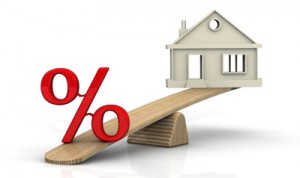If you haven’t looked into it recently, you’ll find that the real estate market has changed  drastically recently. There is a real shortage of homes particularly in the lower cost single family market. When a good house goes up for sale, there are very often multiple full price offers submitted on that house in the first day or two. With this in mind, you will realize that you will be wasting your own and everyone else’s time if you are shopping for a house and you can’t prove your buying power. Refer the Huffington Post 11/2/2016.
drastically recently. There is a real shortage of homes particularly in the lower cost single family market. When a good house goes up for sale, there are very often multiple full price offers submitted on that house in the first day or two. With this in mind, you will realize that you will be wasting your own and everyone else’s time if you are shopping for a house and you can’t prove your buying power. Refer the Huffington Post 11/2/2016.
Even though clients often like to look at houses when they don’t think they’re ready to move, when it’s time to get serious they absolutely must know where they stand.
As a potential home buyer, one of your first calls should be to a lender (if you need help, call your Realtor, she’ll have a few to recommend). If you want to be considered for that dream home, you’ve got to deliver a solid package to the seller in Denver’s highly competitive real estate market.
Pre-Approval vs Pre-Qualification -what’s the difference? Although the terms sound similar, one has power, the other doesn’t. In a nutshell, the difference between being “pre-approved” and “pre-qualified” is as follows:
A Mortgage Pre-qualification is a determination about whether the prospective applicant will most likely qualify for a loan within the lender’s current programs and indicates the amount of loan the buyer may be approved for. The pre-qualification is simply an estimate of your borrowing power so that you don’t waste your time shopping for homes that are out of your qualification price-point or your payment comfort zone.
A Mortgage Pre-approval is a much more formal process. Buyers will have completed a loan application, supplied their income data, W2’s, bank statements, and assets. The lender will also run your credit report and perhaps run the application through an automated underwriting process. With a pre-approval, your lender has done the work up front and can write your pre-approval with some certainty that you will qualify for a loan in a specific price range. For sellers presented with multiple offers, a buyer with a less secure pre-qualification letter may have their offer relegated to the bottom of the stack. Stronger offers get serious consideration so if the seller believes a buyer has gone through the trouble to spend time providing a good lender with the requisite information they know they are
a.) serious, and b.) the transaction is more likely to close smoothly.
Per the Federal Reserve’s definition, a mortgage pre-approval is a written commitment that’s issued by a lender following a comprehensive analysis of their overall creditworthiness. A pre-approval includes such factors as verification of income, verification of employment, available financial resources, as well as the evaluation of other areas typical of a credit evaluation process.
The loan will still have conditions to be met before it clears underwriting and funds for a purchase. Such as:
1. The identification by the buyers of a suitable property.
2. Continued creditworthiness, meaning there is no material change in the applicant’s credit score or debt-to-income ratio before closing (like… don’t go buy a car).
3. Additional terms and conditions may apply, things related to the transaction rather than the buyer. A clean title and acceptable title insurance binder is key and some types of loans require a home inspection, and of course, the appraisal.
The Pre-approval letter is about three steps closer to the underwriting process, and that makes your seller feel secure. As a Realtor, I work with both buyers and sellers. It’s in my client’s interest to get pre-approved with a reputable lender before we start the process… just like the “Big Girls” do. It’s not just a matter of being efficient with our time, it’s that in our super-heated Denver market, we may go power shopping on Saturday and need to get an offer in as soon as possible so as not to miss the window of opportunity. If your lender is skiing or spending the day on the golf course, it adds pressure trying to track him or her down. Submitting an offer without a lender letter weakens your position when your offer is on the table along with five others.
Realtors want to know that the buyer has taken the time to meet with a lender and has begun the process. Since nothing is certain in the real estate transaction, it’s good practice to mitigate unnecessary risk.
Neither pre-qualification or pre-approval letters are absolute, iron-clad loan commitments. Lenders and underwriters examine the file and circumstances can change from contract to close: buyer can lose their job, misrepresented something on the application (knowingly or not) or left out some pertinent information like a pending divorce. It is a fluid process.
Sitting down with a lender before you begin will help you time out your purchase. They will introduce you to the different options you have as a borrower, explain types of loans and work with you to find the program that works best for you. A lender meeting can also be helpful in finding any dings on your credit, reporting errors, or outstanding parking tickets that have gone to collections that you forgot all about. Planning your biggest purchase, your planning is key and though there are no guarantees, the process goes much more smoothly once you’re pre-approved.
Ruth Schoenherr is a mortgage broker who will help you find home loans in the Clearwater, Palm Harbor, Largo, Safety Harbor, St Petersburg and Tampa Bay area. For more information, go to her web site at www.ClearwaterMortgageBroker.net.
 neighborhoods. Very often there are multiple offers for the same house. And the choice is not all about price. A seller is not going to favor an offer that might have contingencies. Cash is king. The next best thing is a pre-approved buyer – with a REAL pre-approval.
neighborhoods. Very often there are multiple offers for the same house. And the choice is not all about price. A seller is not going to favor an offer that might have contingencies. Cash is king. The next best thing is a pre-approved buyer – with a REAL pre-approval.




